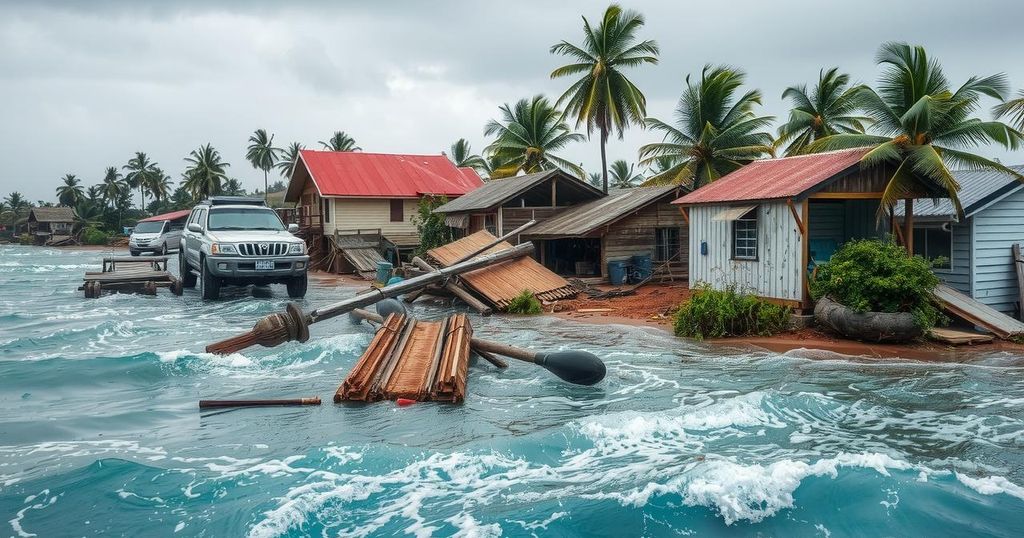WFP Mozambique: Response to Tropical Cyclone Chido’s Impact December 2024
Tropical Cyclone Chido impacted Mozambique on December 15, 2024, with around 2 million individuals at risk. Emergency responses have been initiated, with food assistance provided to affected families, particularly in temporary shelters. The situation necessitates ongoing assessments and immediate preparedness measures in the highest risk districts.
On December 15, 2024, Tropical Cyclone Chido struck the district of Mecufi in Cabo Delgado province, Mozambique, posing a significant threat to the region. Approximately 2 million individuals are currently at risk, with 627,000 categorized as high risk and 1.4 million at moderate risk. Government meteorological reports have noted that the cyclone’s potential effects may severely impact river basins, road infrastructures, electricity poles, and health facilities, necessitating urgent preventive and responsive measures.
The districts identified as most vulnerable include Mecufi, Chiure, Metuge, Pemba, Namuno, Montepuez, and Ancuabe in Cabo Delgado, as well as Memba, Nacaroa, and Erati in Nampula province. In light of these risks, early warning messages and voluntary evacuation directives were disseminated starting on December 8 in Nampula and December 12 in Pemba, successfully reaching over 400,000 individuals residing in the affected areas as part of the Anticipatory Action Plan.
WFP has reacted promptly, providing emergency food assistance to roughly 500 families displaced by the cyclone within temporary shelters in Pemba within just under 24 hours post-impact. Furthermore, food supplies were also made available in temporary accommodation centers located in Mogincual, Nampula, with efforts coordinated alongside WFP support through the National Institute for Disaster Management (INGD). Multi-sector assessments are projected to take place in the Mecufi and Chiure districts in Cabo Delgado, highlighting the commitment to understanding and addressing the ongoing humanitarian needs.
The Florence Nomad Tropical Cyclone Chido poses a serious threat to Mozambique, particularly in the northern provinces of Cabo Delgado and Nampula. Tropical cyclones frequently impact these regions, causing devastating effects on populations, infrastructure, and the economy. Government bodies and humanitarian organizations actively monitor such situations to ensure swift response actions, underpinning a comprehensive disaster preparedness and management strategy. The current warning and evacuations indicate a proactive stance taken to mitigate the cyclone’s impact on at-risk communities.
In conclusion, Tropical Cyclone Chido has highlighted the vulnerability of millions in Mozambique, with nearly 2 million individuals at risk of adverse effects. The concerted efforts by government and humanitarian agencies to disseminate warnings and provide emergency relief are essential in mitigating the cyclone’s impact. Ongoing assessments will be crucial for addressing the immediate and long-term needs of affected communities, ensuring that adequate resources and support are mobilized.
Original Source: reliefweb.int




Post Comment